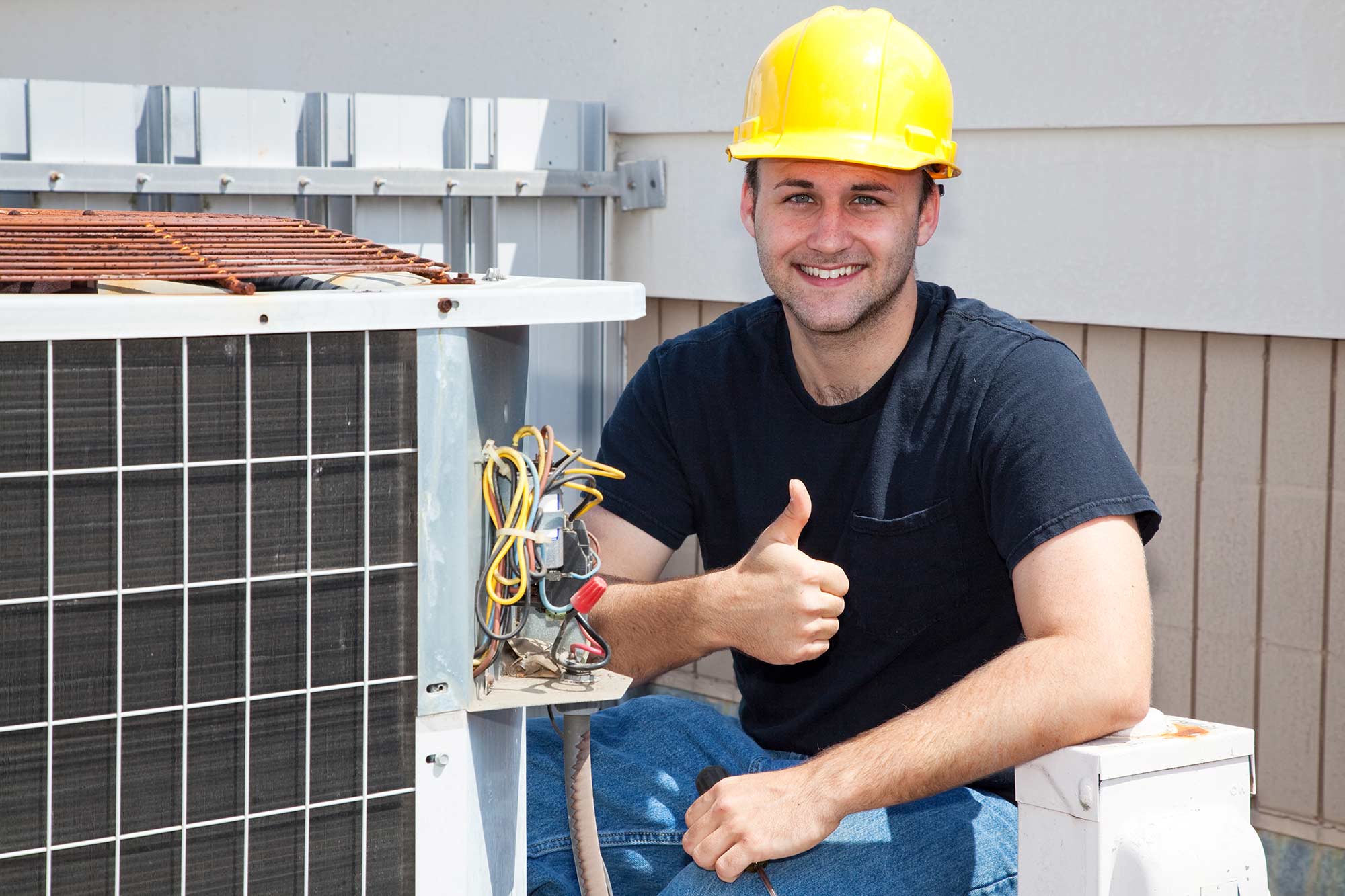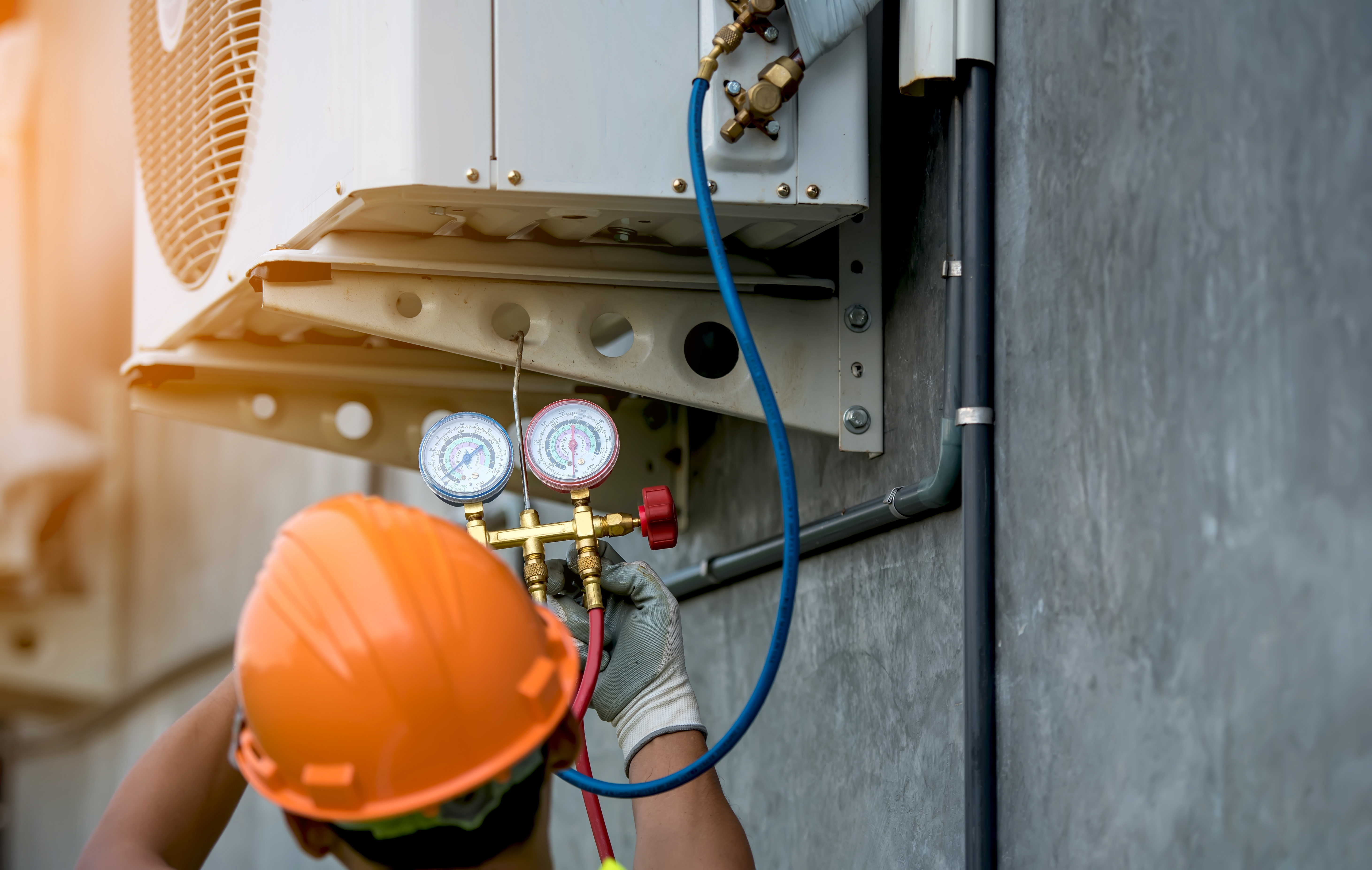HVAC company vs independent tech: which is better?
Wiki Article
The Relevance of A/c Knowledge: Revealing Root Causes Of Air Conditioning Troubles for Homeowners
House owners typically ignore the value of comprehending their a/c systems. Identifying common signs of a/c problems can bring about timely treatments. Issues like insufficient air conditioning or uncommon noises are not simply annoyances; they can suggest much deeper issues. By checking out the origin triggers of these troubles, homeowners can enhance system effectiveness and expand its lifespan. What are the most prevalent problems that can arise, and how can they be successfully attended to?Usual Indicators of A/c Issues
Just how can house owners recognize issues with their cooling systems before they intensify? Recognizing typical indicators of a/c problems is important for prompt maintenance. One widespread sign wants air conditioning; if the cooling unit stops working to decrease the interior temperature, it may signify underlying problems. Uncommon sounds, such as grinding or hissing, can also show mechanical failures or loose components - ac fix. In addition, homeowners should be careful of weird odors rising from the system, which may suggest mold and mildew development or electric issues. Regular biking on and off, understood as brief biking, can show thermostat issues or cooling agent leakages. An increase in energy expenses without a matching increase in usage may aim to inefficiency. By remaining sharp to these caution signs, home owners can protect against a lot more substantial issues and expensive repair work, guaranteeing their cooling systems operate successfully throughout the warmer months
Comprehending Cooling Agent Issues
Refrigerant problems can considerably impact the performance of a HVAC system. Homeowners ought to know the indicators of low cooling agent degrees and the significance of identifying cooling agent leaks. Resolving these problems without delay can protect against more damage to the system and warranty height cooling performance.Low Refrigerant Levels
A typical issue that property owners may come across with their cooling and heating systems is low refrigerant levels, which can greatly influence the system's performance and performance. Refrigerant is essential for the cooling procedure, soaking up warm from indoor air and releasing it outside. When levels drop, the air conditioning unit battles to cool the space successfully, bring about enhanced power usage and potential system pressure. Symptoms of reduced refrigerant include insufficient air conditioning, longer run times, and ice formation on the evaporator coils. Home owners might additionally notice unusual sounds as the compressor functions harder to compensate for the shortage. It is crucial for home owners to understand the importance of keeping proper cooling agent degrees to guarantee peak heating and cooling efficiency and long life.Refrigerant Leaks Detection
Where might a homeowner begin when confronted with the opportunity of refrigerant leaks in their HVAC system? The initial step entails keeping an eye on the system's efficiency. Indications such as lowered cooling down effectiveness, ice development on coils, or hissing audios might indicate a cooling agent leak. Home owners need to likewise inspect for noticeable indicators of oil deposit, often an indication of a leak. Utilizing a cooling agent leak detector can offer more accurate identification. If suspicions continue, seeking advice from a licensed HVAC professional is important, as they have the know-how and devices to locate leakages effectively. Motivate discovery and repair work of refrigerant leaks not just improve system performance however likewise avoid prospective ecological injury, making it a crucial facet of a/c upkeep.Electrical Failures and Their Impact
Electric failures can greatly affect heating and cooling systems, specifically with concerns like breaker malfunctions and defective circuitry. These troubles not just disrupt the system's performance however can likewise lead to costly repair work and safety and security threats. Comprehending the ramifications of such failings is crucial for house owners to preserve an efficient and safe heating and cooling setting.Breaker Issues
Just how can circuit breaker concerns impact the effectiveness of a HVAC system? Circuit breakers function as essential safety devices that manage electrical circulation to heating and cooling systems. If a circuit breaker trips regularly, it disrupts power supply, bring about irregular heating or cooling. This can cause substantial stress on the system, resulting in ineffective procedure and possible damages to components. Home owners may see increased power expenses because of the heating and cooling system's battle to keep wanted temperature levels. In addition, duplicated disturbances from tripped breakers can reduce the life expectancy of the air conditioning system, calling for pricey fixings or get more substitutes. Regular upkeep of breaker is important, as it assures a stable power supply, inevitably enhancing the general efficiency of the cooling and heating system.Faulty Electrical Wiring Consequences
Often forgotten, malfunctioning wiring can have dire repercussions for a/c systems. Wiring concerns may result in short circuits, causing constant breakdowns and boosted fixing expenses. Furthermore, improper wiring can create ineffective energy usage, leading to higher utility bills and strain on the system. In extreme instances, faulty circuitry can trigger electrical fires, presenting a significant safety danger to property owners. In addition, these electrical failings can damage HVAC parts, resulting in costly replacements or comprehensive repair services. House owners need to prioritize routine evaluations by qualified experts to recognize and fix wiring troubles prior to they intensify. Understanding the ramifications of defective electrical wiring can assist ensure the long life and security of cooling and heating systems, inevitably shielding both the home and its residents.Clogged Filters and Their Effects
While several property owners might overlook the value of regular filter maintenance, stopped up filters can cause considerable repercussions for a/c systems. When filters end up being blocked with dust, dirt, and gas furnace particles, airflow is restricted. This reduction in air flow compels the system to function harder, causing raised energy consumption and possibly greater energy bills. In time, this pressure can cause damage on parts, causing early system failure.In addition, clogged filters can compromise interior air top quality. Contaminants and irritants might circulate throughout the home, intensifying breathing problems and allergic reactions for passengers. Furthermore, poor air movement can create the evaporator coil to freeze, causing expensive repair services and ineffective air conditioning efficiency. Routinely altering or cleaning filters is an easy yet vital upkeep job that can aid ensure the durability and effectiveness of HVAC systems, ultimately benefiting both the homeowner's comfort and their finances.

Thermostat Malfunctions Described
What happens when a thermostat breakdowns can substantially impact both comfort and power effectiveness in a home (ac unit replacement). A damaged thermostat may stop working to precisely read the temperature level, causing overcooling or inadequate air conditioning. This inconsistency can cause pain for passengers and result in greater power expenses, as the HVAC system functions more difficult than requiredUsual problems consist of dead batteries, which can provide digital thermostats faulty, and loosened electrical wiring that interrupts interaction in between the thermostat and the heating and cooling device. Additionally, out-of-date or poorly adjusted thermostats may not respond appropriately to temperature adjustments, even more intensifying energy ineffectiveness.
Homeowners must be cautious for indicators of try here malfunction, such as irregular temperature levels or unforeseen energy expenses. Normal checks and understanding of the thermostat's capability can assist determine issues early, making certain peak performance of the heating and cooling system. Attending to thermostat problems immediately is necessary for preserving a comfortable living environment and managing power consumption efficiently.
The Role of Normal Maintenance
Routine upkeep plays a vital role in ensuring the durability and performance of HVAC systems. House owners that prioritize routine checks can prevent minor problems from intensifying right into expensive repair work. Routine maintenance usually consists of tasks such as cleansing filters, examining ductwork, and examining refrigerant degrees. These tasks assist maintain suitable air flow and system efficiency, lowering energy consumption.A well-maintained Heating and cooling system operates more effectively, providing regular convenience throughout the home. Routine tune-ups can also extend the life expectancy of the unit, bring about substantial savings gradually. Home owners are motivated to schedule specialist inspections at the very least yearly to identify potential troubles early.
Additionally, lots of suppliers require routine upkeep to promote service warranties, making this method not only valuable but usually required. Generally, recognizing the value of routine maintenance encourages homeowners to guard their a/c systems against unanticipated failures and enhance their investment in home convenience.
Often Asked Questions
How Can I Enhance My Air conditioner's Power Performance?
Improving an AC's energy efficiency includes regular maintenance, cleansing or replacing filters, securing ductwork, making certain proper insulation, using programmable thermostats, and scheduling professional inspections to recognize and rectify possible problems affecting performance.
What Is the Lifespan of a Typical Air Conditioning System?
A typical air conditioning device has a life-span of 15 to twenty years, relying on upkeep, usage, and ecological factors. Routine upkeep can significantly extend its functional life and enhance overall effectiveness.
When Should I Replace My Cooling System?
A cooling system should generally be replaced every 10 to 15 years. Indicators for replacement consist of constant repair work, rising power expenses, and insufficient air conditioning, showing that an upgrade might be extra cost-efficient and efficient.Can I Repair A/c Problems Myself?
Yes, individuals can repair air conditioning issues themselves by inspecting filters, ensuring power supply, and checking for noticeable issues (HVAC contractor). Intricate problems typically need professional support for accurate medical diagnosis and risk-free repair, guaranteeing ideal system efficiency.
Exactly how Do I Choose a Reputable HVAC Service Technician?

To select a reliable cooling and heating professional, one ought to seek suggestions, inspect online reviews, validate licenses and insurance, evaluate experience, and request comprehensive price quotes to ensure quality service and fair prices prior to choosing.
Verdict
To summarize, a solid understanding of heating and cooling systems allows home owners to effectively diagnose and attend to usual a/c issues. Recognizing signs such as poor cooling or increasing power expenses allows for prompt treatments, which can substantially improve system effectiveness and durability. By staying informed concerning potential problems like refrigerant leaks, electric failings, and clogged filters, home owners can take proactive steps to keep their systems, ultimately making sure comfort and advertising a healthier living atmosphere. Normal maintenance continues to be essential to this venture.Report this wiki page